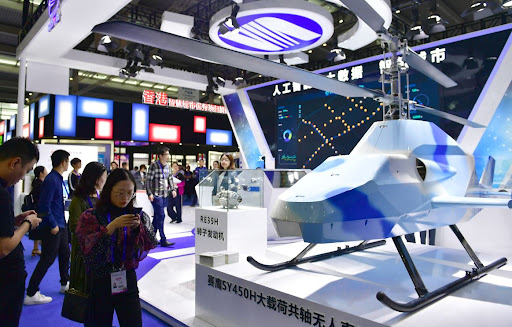
Unprecedented Bidding War Erupts Over Anysphere, Creator of Popular AI Coding Assistant Cursor
Technology News
Zaker Adham
09 November 2024
12 August 2024
|
Zaker Adham
Summary
Summary
In 2023, the artificial intelligence (AI) industry in Guangdong province, China, grew to 180 billion yuan ($25 billion), according to state media. This growth is part of Guangdong's efforts to catch up with Beijing and Shanghai in the competitive AI sector.

Shenzhen, a major technology hub bordering Hong Kong, significantly contributed to this growth, accounting for 80 billion yuan (44%) of the province's AI output. The report, published by the state-backed Shenzhen Special Zone Daily, highlights that Guangdong had around 489,000 AI-related companies last year, including over 1,200 publicly traded enterprises.
Despite this progress, Guangdong's AI industry still trails behind Beijing and Shanghai. Beijing, home to China's top universities and a robust start-up ecosystem, leads the country with an AI industry output value of over 250 billion yuan in 2023. The city launched 82 large language models (LLMs) last year, representing more than 40% of the country's total.
Shanghai's AI industry also saw significant growth, reaching nearly 150 billion yuan last year with 1,100 AI companies. Shenzhen's efforts align with China's broader push to establish regional AI "highlands" across the country, following President Xi Jinping's call to leverage AI for industrial modernization.
China's restricted internet environment has allowed domestic AI firms to thrive without foreign competition. While OpenAI's ChatGPT is unavailable in China, local companies like Baidu, SenseTime, iFlyTek, and Alibaba Group have developed alternatives.
Guangdong, a major manufacturing hub, is home to leading tech firms such as Huawei Technologies, Tencent Holdings, and DJI. The provincial government aims to integrate AI with manufacturing, focusing on advanced intelligent robotics. In an industry action plan released in June, Guangdong pledged to build a 300 billion yuan AI industry by next year and grow it to 440 billion yuan by 2027. The plan includes fostering AI growth in semiconductors, software development, Chinese language data sets, and compute infrastructure, with applications in manufacturing, education, and elderly care.

Technology News
Zaker Adham
09 November 2024

Technology News
Zaker Adham
09 November 2024

Technology News
Zaker Adham
09 November 2024

Technology News
Zaker Adham
07 November 2024